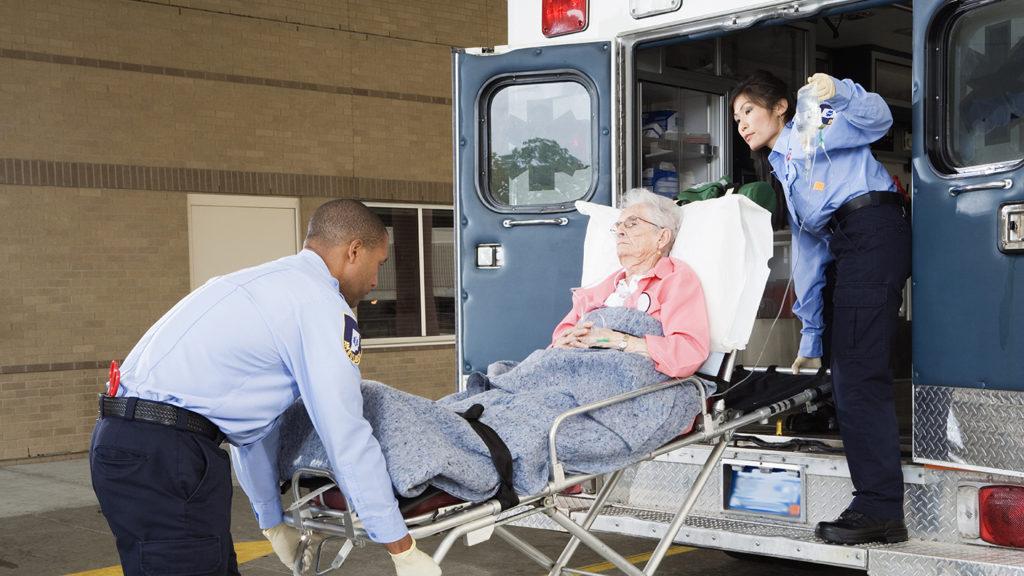
Few older adults receive opioids before going to a hospital even though it’s recommended when people are in transport. There’s a benefit to getting the medications early, a recent study shows.
There’s also no specific guidance on giving opioids in older adults with fall-related injuries. Some research has shown giving the medication before going to a hospital can manage pain, but less is known about whether or not it’s safe.
A study published in the Journal of the American Geriatrics Society last Wednesday uncovered benefits related to older adults receiving opioids following fall-related injuries.
Researchers examined Medicare claims data with pre-hospital visit care reports. All of the data was on 28,150 people aged 65 and up who had fall-related injuries between 2014 and 2015. Of the individuals, 3% received opioids before they were admitted. The people evaluated included 69.8% women, 45.3% were 85 or older and 49.7% were discharged home from the emergency department.
The older adults who were given opioids before their hospital stay were less likely to be discharged home from the emergency department and more likely to be discharged to a non-home setting after an inpatient admission. The people who received the medications had an inpatient stay 0.4 days shorter than those who didn’t receive opioids before heading to the hospital. Participants with the medication stayed in the intensive care unit 0.7 days less than those who didn’t get the drugs. Of the people studied, the incidence of delirium didn’t vary much whether or not the older adults received opioids before their hospital stay.
Overall, people who received opioids before going to the hospital tended to be younger, female, had moderate injuries, were less likely to have a traumatic brain injury, and were more apt to be treated at a non-trauma center. The authors said that their findings should be considered when clinicians come up with rules on how to manage prehospital pain management in older adults.
“These findings are especially relevant in the context of recently published guidelines for prehospital pain management, in which intravenous opioids were recommended over non-steroidal anti-inflammatory drugs and intravenous acetaminophen was recommended over opioids,” the authors noted.
“Ultimately, both recommendations were made with low certainty of evidence, and no specific recommendations were made for older adults, reinforcing the need for ongoing research regarding the safety and effectiveness of prehospital pain management,” the authors noted.



